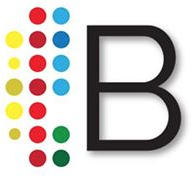Once again academia has pretty much confirmed one of life’s truisms. In the 2006 Journal of Behavioral Decision Making, authors Epley, Mak, and Idson, in an article titled "Bonus of Rebate?: The Impact of Income Framing on Spending and Saving," drew on previous research in mental budgeting & accounting, which has demonstrated that where our spending behavior can be predicated on which account we pull money from. They took another step along this line of research and conducted four experiments, each of which supported their hypothesis that when we spend, we do so with a consideration of how we acquired that money to begin with. Basically, if we receive money that is presented to us in the form of a “bonus” to our absolute wealth, we are significantly more inclined to spend it than if we are told that the money is couched in the form a rebate, or “a return to a prior state” of our wealth. This behavior, in their words, has important “ implications for the consumption of other commodities, assessments of risk, and government tax policies.” For example, our government has in recent history (2001, 2009) given Americans rebate checks with the hope that Americans would spend them to stimulate the economy. Unfortunately for those officials the numbers cited (at least for 2001) reflected that nearly only 22% of us spent that money, and as we know, we still have yet to recover lickety-split from 2009.

